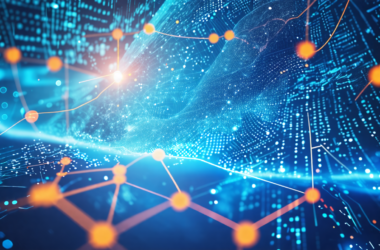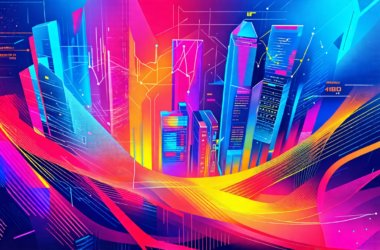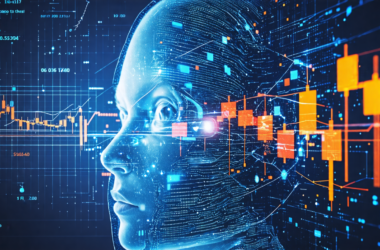Since the song’s release, it has been unavoidable. The chorus sticks in your head, then follows you around, reverberating at weddings, baseball stadiums, gyms, even a convent.
Willonius Hatcher isn’t sure exactly how many views his sensational song, “BBL Drizzy,” has.
When he first created the joke song—which refers to a rumor that rapper Drake received a plastic surgery procedure on his glutes called a Brazilian butt lift—the comedian just wanted to inject some humor into the vicious feud brewing between the rapper and musician Kendrick Lamar. Then, contemporary hip hop producer Metro Boomin’, eager to dunk on Drake, remixed the song and created the “BBL Drizzy” challenge, offering $10,000 and a free beat to the best lyricist.
That remix shot the song into something beyond virality; it became emblazoned into our cultural fabric, recognizable to anyone with a phone, or with ears. However, “BBL Drizzy” was not yet finished.
Two weeks ago, Drake himself and another buzzy rapper, Sexxy Red, sampled the song in a new track called “U My Everything.” In doing so, Drake—perhaps accidentally—became the first artist to clear a sample for an AI-generated track.
Some industry experts warned Fortune that Drake opened a Pandora’s box which will alter the music business forever.
“You could luck out, write a song with funny lyrics, generate it, and put it out there, and you’re laughing, going, ‘Hey, we wrote this song,’” Martin Clancy, the chair of the IEEE Global AI Ethics committee, said. “And that’s funny, but the joke has quite serious consequences when you go down the line.”
Generating “BBL Drizzy”
Hatcher told Fortune that he is not a musician or a producer, but a comedy writer. He wrote the lyrics to “BBL Drizzy,” and then placed it into Udio, a generative AI model which paired the words with a vintage-sounding soul voice.
“AI allowed me to do my art at a very high level,” Hatcher said. To make “BBL Drizzy,” he said he would’ve had to get a ’70s solo singer, a band, a studio, plus a photo shoot for the cover. “It just wouldn’t have happened.”
If a song is completely created using AI, then that track is public domain, Joseph Fishman, a Vanderbilt law professor specializing in intellectual property, told Fortune. That means that anyone can sample that song for free, without the threat of a lawsuit.
However, in the case of “BBL Drizzy,” the lyrics were human-authored, which means that Sexyy Red and Drake’s lawyers had to clear that portion of the sample with Hatcher’s lawyers, Donald Woodard and Uwonda Carter. To compensate Hatcher, the parties worked out a deal where he received an advanced cash fee, plus a portion of the publishing profits from “U My Everything.”
Woodard and Carter declined to cite the dollar amount for the deal, citing confidentiality laws. However, Hatcher said it was a “very fair, a really good deal for all parties involved.”
The details for the deal were actually worked out aftrer the release of “U my Everything,” Woodard said, making for a very late night for the two entertainment lawyers.
“It’s interesting, but it’s also scary to be part of this conversation,” Woodard said. “This issue impacts all of our lives in the industry;, it’s something we have to protect. We have to protect talent and creatives.”
Since it is the first deal of its kind, Hatcher said he was happy that he received any profits at all.
“Prior to ‘“BBL Drizzy,’” the music industry really wasn’t looking at AI in music in the most favorable light,” Hatcher said, adding that Drake in particular has been an outspoken critic of AI after fans shared AI-generated clips of his voice. “It’s crazy to be the pioneer.”
However, there are complex legal, ethical, and philosophical questions associated with the precedent that Hatcher’s lawyers have set in motion. Now that producers can simply sample AI-generated songs for free, some experts in the entertainment industry believe it could spell trouble for artists and musicians.
“98%” of jobs could be in trouble
Martin Clancy, a music professor and chair of the AI Ethics board of the IEEE, said that the music industry is already fragile for the majority of creators. Most musicians and producers have to take two or three other jobs just to make a living, Clancy said.
“So when something like this deal comes along…it sets a real danger, because you can see where the appeal [of having free samples] is, but that’s a lot of people’s jobs,” he noted. “That’s not necessarily the Taylor Swifts of this world, but it’s everybody else, which is like 98% of people who try to make a living in music., tThis definitely gets…to the heart of their income streams. So that’s how big that would be.”
Well-known producers, who provide value simply by placing their name or brand onto a song, will be preserved in this era, Clancy said. Musicians will always relish the prestige of working with a legacy producer. However, “bedroom producers,” or those who rely on producing a large quantity of beats to sell, may be completely eliminated.
Gary Greenstein, an established music lawyer and partner at Wilson Sonsini Goodrich & Rosati, agreed, saying that those who produce beats on the side will likely “see that source of income drying up for them.”
Othello Beats, an up-and-coming producer who has worked with rap stars like Pop Smoke and Meek Mill, told Fortune that he worries about AI having unfair advantages over human producers.
“People’s argument is that us musicians, we already take past songs, and we copy it and flip it in our own way,” Othello said. “But the scale that a computer can do it at is much greater than a human. A computer can scan almost every song in the world and replicate it.”
He added that while he didn’t yet feel the threat, he hoped there would be legislation and regulation on AI to protect musicians’ jobs.
Niki Zahedi, a senior vice president at management company Hallwood Media and Othello’s manager, agreed that AI could eliminate many of the headaches around clearing samples that could be easily generated. However, she added that many samples are clips of famous songs, which are under copyright and thus could not be AI-generated.
What she believed could be easily replaced, however, is sync music: music that is utilized in commercials, films, video games, trailers, etc. Hallwood Media receives sync briefs weekly from companies requesting a certain type of song for commercials or movie scenes, which she then connects to artists with.
“That’s a really good way for artists to make money,” Zahedi said. Recently, one of her clients made $200,000 for a jingle that was aired nationwide.
Jason Boyarski, a prominent entertainment lawyer known for managing Prince’s estate, told Fortune that he believed sync music was likely to be overtaken by AI first.
“I don’t think AI replaces human creativity and originality, and that’s why, at least in the short run, you’ll see more uses of it in the background music space, in the library music space,” Boyarski said.
However, Boyarski argued that producers, in the short run, still have a vital role to play in creating songs.
“There’s so much that goes into producing a song— getting the vocals right, changing pieces of it, it’s hard to think that an underlying AI-created song wouldn’t involve meaningful changes,” he said.
Greenstein agreed, noting that AI platforms like Sumo remove barriers to entry for small-time producers to become recognized. An unsigned music creator could post their AI-generated music on TikTok or Spotify, and if people like it, it’ll go viral.
“I don’t see why that’s a bad thing,” he said.
The only AI-related policy that Spotify has is against impersonation; otherwise, AI songs are allowed on the platform.
For creators like Hatcher, Greenstein’s scenario is a reality. Hatcher is now overwhelmed by requests from companies who want him to make them a funny jingle, or social media stars interested in collaboration.
“The same way an influencer now can make six figures using their influence to promote a brand, AI creators will be able to make a living,” Hatcher said. “Whether it’s making a film, making a song, making a photo, whatever it is, they will be using their talents, assisted with AI.”










